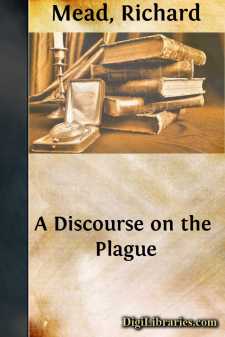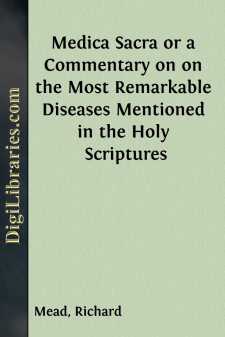Categories
- Antiques & Collectibles 13
- Architecture 36
- Art 48
- Bibles 22
- Biography & Autobiography 813
- Body, Mind & Spirit 142
- Business & Economics 28
- Children's Books 15
- Children's Fiction 12
- Computers 4
- Cooking 94
- Crafts & Hobbies 4
- Drama 346
- Education 46
- Family & Relationships 57
- Fiction 11828
- Games 19
- Gardening 17
- Health & Fitness 34
- History 1377
- House & Home 1
- Humor 147
- Juvenile Fiction 1873
- Juvenile Nonfiction 202
- Language Arts & Disciplines 88
- Law 16
- Literary Collections 686
- Literary Criticism 179
- Mathematics 13
- Medical 41
- Music 40
- Nature 179
- Non-Classifiable 1768
- Performing Arts 7
- Periodicals 1453
- Philosophy 64
- Photography 2
- Poetry 896
- Political Science 203
- Psychology 42
- Reference 154
- Religion 513
- Science 126
- Self-Help 84
- Social Science 81
- Sports & Recreation 34
- Study Aids 3
- Technology & Engineering 59
- Transportation 23
- Travel 463
- True Crime 29
Richard Mead
Richard Mead (1673–1754) was an English physician and writer known for his contributions to medicine and public health. His most famous work, "A Short Discourse Concerning Pestilential Contagion," was influential in shaping early ideas about the spread of infectious diseases. Mead also wrote "Mechanical Account of Poisons," exploring the effects of venom and toxins on the human body. In addition to his medical writings, Mead was a prominent figure in London's intellectual circles, advising on public health measures during outbreaks like the plague.
Author's Books:
Sort by:
by:
Richard Mead
THE PREFACE. This Book having at first been written only as a Plan of Directions for preserving our Country from the Plague was then very short and concise. An Act of Parliament being immediately after made for performing Quarantaines &c. according to the Rules here laid down, it passed through seven Editions in one year without any Alterations. I then thought proper to make some Additions to it,...
more...
by:
Richard Mead
T is a natural, nor can it be deemed an illaudable curiosity to be desirous of being informed of whatever relates to those who have eminently distinguished themselves for sagacity, parts, learning, or what else may have exalted their characters, and thereby entitled them to a degree of respect superior to the rest of their cotemporaries. The transmission of such particulars, has ever been thought no...
more...



